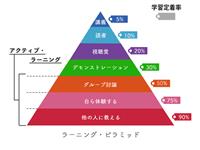Dr,Jerry L,Huxell
Organizational Behavior
Personality,Emotions and
Perceptions
Dr,Jerry L,Huxell
Personality
? The unique qualities of an individual
? The sum total of ways in which an
individual reacts and interacts with others.
? Determinants
– Heredity
– Environment
– Situation
Dr,Jerry L,Huxell
Myers-Briggs Type Indicators
(MBTI)
? A personality test that taps four
characteristics and classifies people into 1
of 16 personality types
– Extroverted or Introverted (E or I)
– Sensing or Intuitive (S or N)
– Thinking or Feeling (T or F)
– Perceiving or Judging (P or J)
Dr,Jerry L,Huxell
Big Five Model
? Extroversion – sociable,assertive
? Agreeableness – good-natured,
cooperative,trusting
? Conscientiousness – responsible,
dependable,persistent
? Openness to experience –
imaginativeness,artistic,sensitivity
? Emotional stability – calm,self-confident,
secure
Dr,Jerry L,Huxell
Major Personality Attributes
? Locus of control
? Machiavellianism
? Self-esteem
? Self-monitoring
? Propensity for risk-taking
? Type A or B personalities
Dr,Jerry L,Huxell
Locus of Control
? The degree to which people believe that
they are masters of their own fate
– Internals – believe that they can control what
happens to them
– Externals – believe that what happens to
them is controlled by outside forces such as
luck and chance
Dr,Jerry L,Huxell
Machiavellianism
? The degree to which an individual is
pragmatic,maintains emotional distance,
and believes that ends can justify the
means
? High Machs want to gain and use power,
manipulate more,and persuade others
more
Dr,Jerry L,Huxell
Self-Esteem and Self-Monitoring
? Self-esteem – individual’s degree of liking
or disliking themselves
? Self-monitoring – measures an individual’s
ability to adjust his or her behavior to
external situational factors
Dr,Jerry L,Huxell
Propensity for Risk Taking
? High – make faster decisions,use less
information,operate in smaller and more
entrepreneurial organizations
? Low make decisions slower,require more
information,and operate in larger
organizations in stable environments
Dr,Jerry L,Huxell
Type A Personality
? Always moving,walking and eating fast
? Always feel impatient
? Try to do two or more things at once
? Cannot cope with leisure time
? Are obsessed with numbers
Dr,Jerry L,Huxell
Personality-Job Fit Theory
? Identifies six personality types and proposes that
the fit between personality type and
occupational environment determines
satisfaction and turnover
– Realistic
– Investigative
– Social
– Conventional
– Enterprising
– Artistic
Dr,Jerry L,Huxell
Emotions versus Moods
? Emotions are intense feelings that are
directed at someone or something
? Moods are feelings that tend to be less
intense than emotions and that lack a
contextual stimulus
? Can hinder or enhance job performance
Dr,Jerry L,Huxell
Felt versus Displayed Emotions
? Felt emotions – an individual’s actual
emotions
? Displayed emotions – emotions that are
organizationally required and considered
appropriate in a given job.
Dr,Jerry L,Huxell
Universal Emotions
? Anger
? Fear
? Sadness
? Happiness
? Disgust
? Surprise
Dr,Jerry L,Huxell
Emotional Intelligence
? Skills,capabilities,and competencies that
influence a person’s ability to succeed in
coping with environmental demands and
pressures.
– Self-awareness
– Self-management
– Self-motivation
– Empathy
– Social skills
Dr,Jerry L,Huxell
Why Understand Emotions
? Ability and selection – emotional
intelligence
? Decision making
? Motivation
? Leadership
? Interpersonal conflict
? Deviant workplace behavior
Dr,Jerry L,Huxell
Perception
? A process by which individuals organize
and interpret their sensory impressions in
order to give meaning to their environment
? People’s behavior is based on their
perceptions of what reality is,not on reality
itself
Dr,Jerry L,Huxell
Factors that Influence Perception
? Situation – time,work setting,social
setting
? Perceiver – attitudes,motives,interests,
experience,expectations
? Target – novelty,motion,sounds,size,
background,proximity,similarity
Dr,Jerry L,Huxell
Person Perception
? Attribution theory – when individuals
observe behavior,they attempt to
determine whether it is internally or
externally caused
– Distinctiveness
– Consensus
– Consistency
Dr,Jerry L,Huxell
Errors and Biases in Attribution
? Fundamental attribution error –
overestimate the influence of internal
causes
? Self-serving bias – attributing success to
internal factors and failure to external
factors
Dr,Jerry L,Huxell
Shortcuts Used in Judging Others
? Selective perception
? Halo effect
? Contrast effect
? Projection
? Stereotyping
Dr,Jerry L,Huxell
Rational Decision Making
? Define the problem
? Identify the decision criteria
? Allocate weights to the criteria
? Develop the alternatives
? Evaluate the alternatives
? Select the best alternative
Organizational Behavior
Personality,Emotions and
Perceptions
Dr,Jerry L,Huxell
Personality
? The unique qualities of an individual
? The sum total of ways in which an
individual reacts and interacts with others.
? Determinants
– Heredity
– Environment
– Situation
Dr,Jerry L,Huxell
Myers-Briggs Type Indicators
(MBTI)
? A personality test that taps four
characteristics and classifies people into 1
of 16 personality types
– Extroverted or Introverted (E or I)
– Sensing or Intuitive (S or N)
– Thinking or Feeling (T or F)
– Perceiving or Judging (P or J)
Dr,Jerry L,Huxell
Big Five Model
? Extroversion – sociable,assertive
? Agreeableness – good-natured,
cooperative,trusting
? Conscientiousness – responsible,
dependable,persistent
? Openness to experience –
imaginativeness,artistic,sensitivity
? Emotional stability – calm,self-confident,
secure
Dr,Jerry L,Huxell
Major Personality Attributes
? Locus of control
? Machiavellianism
? Self-esteem
? Self-monitoring
? Propensity for risk-taking
? Type A or B personalities
Dr,Jerry L,Huxell
Locus of Control
? The degree to which people believe that
they are masters of their own fate
– Internals – believe that they can control what
happens to them
– Externals – believe that what happens to
them is controlled by outside forces such as
luck and chance
Dr,Jerry L,Huxell
Machiavellianism
? The degree to which an individual is
pragmatic,maintains emotional distance,
and believes that ends can justify the
means
? High Machs want to gain and use power,
manipulate more,and persuade others
more
Dr,Jerry L,Huxell
Self-Esteem and Self-Monitoring
? Self-esteem – individual’s degree of liking
or disliking themselves
? Self-monitoring – measures an individual’s
ability to adjust his or her behavior to
external situational factors
Dr,Jerry L,Huxell
Propensity for Risk Taking
? High – make faster decisions,use less
information,operate in smaller and more
entrepreneurial organizations
? Low make decisions slower,require more
information,and operate in larger
organizations in stable environments
Dr,Jerry L,Huxell
Type A Personality
? Always moving,walking and eating fast
? Always feel impatient
? Try to do two or more things at once
? Cannot cope with leisure time
? Are obsessed with numbers
Dr,Jerry L,Huxell
Personality-Job Fit Theory
? Identifies six personality types and proposes that
the fit between personality type and
occupational environment determines
satisfaction and turnover
– Realistic
– Investigative
– Social
– Conventional
– Enterprising
– Artistic
Dr,Jerry L,Huxell
Emotions versus Moods
? Emotions are intense feelings that are
directed at someone or something
? Moods are feelings that tend to be less
intense than emotions and that lack a
contextual stimulus
? Can hinder or enhance job performance
Dr,Jerry L,Huxell
Felt versus Displayed Emotions
? Felt emotions – an individual’s actual
emotions
? Displayed emotions – emotions that are
organizationally required and considered
appropriate in a given job.
Dr,Jerry L,Huxell
Universal Emotions
? Anger
? Fear
? Sadness
? Happiness
? Disgust
? Surprise
Dr,Jerry L,Huxell
Emotional Intelligence
? Skills,capabilities,and competencies that
influence a person’s ability to succeed in
coping with environmental demands and
pressures.
– Self-awareness
– Self-management
– Self-motivation
– Empathy
– Social skills
Dr,Jerry L,Huxell
Why Understand Emotions
? Ability and selection – emotional
intelligence
? Decision making
? Motivation
? Leadership
? Interpersonal conflict
? Deviant workplace behavior
Dr,Jerry L,Huxell
Perception
? A process by which individuals organize
and interpret their sensory impressions in
order to give meaning to their environment
? People’s behavior is based on their
perceptions of what reality is,not on reality
itself
Dr,Jerry L,Huxell
Factors that Influence Perception
? Situation – time,work setting,social
setting
? Perceiver – attitudes,motives,interests,
experience,expectations
? Target – novelty,motion,sounds,size,
background,proximity,similarity
Dr,Jerry L,Huxell
Person Perception
? Attribution theory – when individuals
observe behavior,they attempt to
determine whether it is internally or
externally caused
– Distinctiveness
– Consensus
– Consistency
Dr,Jerry L,Huxell
Errors and Biases in Attribution
? Fundamental attribution error –
overestimate the influence of internal
causes
? Self-serving bias – attributing success to
internal factors and failure to external
factors
Dr,Jerry L,Huxell
Shortcuts Used in Judging Others
? Selective perception
? Halo effect
? Contrast effect
? Projection
? Stereotyping
Dr,Jerry L,Huxell
Rational Decision Making
? Define the problem
? Identify the decision criteria
? Allocate weights to the criteria
? Develop the alternatives
? Evaluate the alternatives
? Select the best alternative



